150 results in Cambridge Library Collection - Archaeology
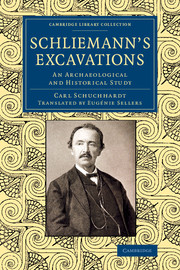
Schliemann's Excavations
- An Archaeological and Historical Study
-
- Published online:
- 05 November 2014
- Print publication:
- 17 April 2014
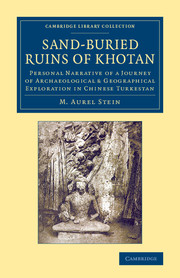
Sand-Buried Ruins of Khotan
- Personal Narrative of a Journey of Archaeological & Geographical Exploration in Chinese Turkestan
-
- Published online:
- 05 November 2014
- Print publication:
- 13 February 2014
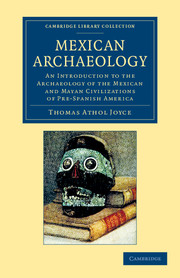
Mexican Archaeology
- An Introduction to the Archaeology of the Mexican and Mayan Civilizations of Pre-Spanish America
-
- Published online:
- 05 October 2014
- Print publication:
- 31 October 2013

Nineveh and its Remains
- With an Account of a Visit to the Chaldaean Christians of Kurdistan, and the Yezidis, or Devil-Worshippers
-
- Published online:
- 05 October 2014
- Print publication:
- 31 October 2013

Nineveh and its Remains
- With an Account of a Visit to the Chaldaean Christians of Kurdistan, and the Yezidis, or Devil-Worshippers
-
- Published online:
- 05 October 2014
- Print publication:
- 31 October 2013
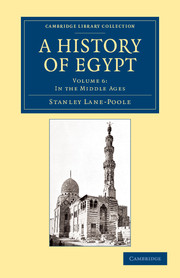
A History of Egypt
-
- Published online:
- 05 October 2014
- Print publication:
- 03 October 2013
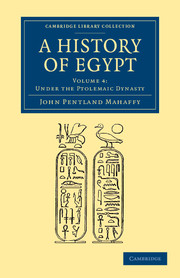
A History of Egypt
-
- Published online:
- 05 March 2014
- Print publication:
- 03 October 2013
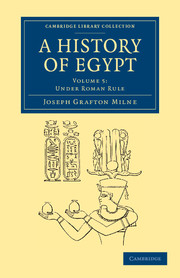
A History of Egypt
-
- Published online:
- 05 March 2014
- Print publication:
- 03 October 2013
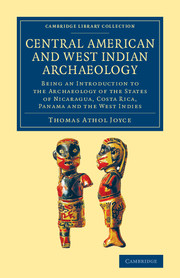
Central American and West Indian Archaeology
- Being an Introduction to the Archaeology of the States of Nicaragua, Costa Rica, Panama and the West Indies
-
- Published online:
- 05 March 2014
- Print publication:
- 26 September 2013
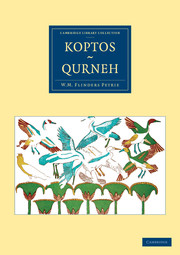
Koptos, Qurneh
-
- Published online:
- 05 March 2014
- Print publication:
- 19 September 2013
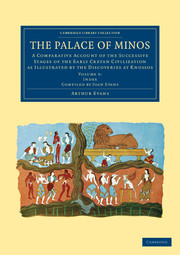
The Palace of Minos
-
- Published online:
- 05 October 2014
- Print publication:
- 29 August 2013
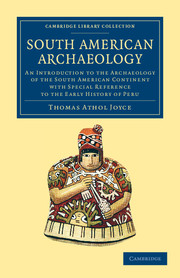
South American Archaeology
- An Introduction to the Archaeology of the South American Continent with Special Reference to the Early History of Peru
-
- Published online:
- 05 October 2014
- Print publication:
- 27 June 2013
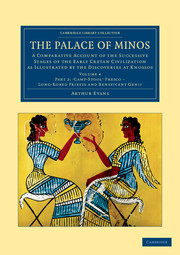
The Palace of Minos
- A Comparative Account of the Successive Stages of the Early Cretan Civilization as Illustrated by the Discoveries at Knossos
-
- Published online:
- 05 October 2014
- Print publication:
- 29 August 2013
- First published in:
- 1935
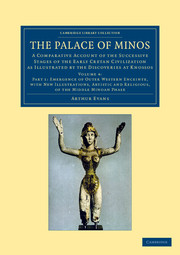
The Palace of Minos
- A Comparative Account of the Successive Stages of the Early Cretan Civilization as Illustrated by the Discoveries at Knossos
-
- Published online:
- 05 October 2014
- Print publication:
- 29 August 2013
- First published in:
- 1935
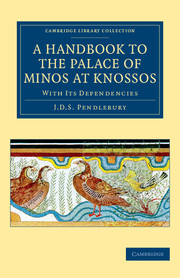
A Handbook to the Palace of Minos at Knossos
- With its Dependencies
-
- Published online:
- 05 June 2015
- Print publication:
- 25 September 2014
- First published in:
- 1933
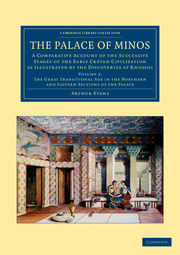
The Palace of Minos
- A Comparative Account of the Successive Stages of the Early Cretan Civilization as Illustrated by the Discoveries at Knossos
-
- Published online:
- 05 October 2014
- Print publication:
- 29 August 2013
- First published in:
- 1930
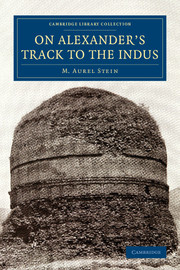
On Alexander's Track to the Indus
- Personal Narrative of Explorations on the North-West Frontier of India Carried Out under the Orders of H.M. Indian Government
-
- Published online:
- 05 June 2015
- Print publication:
- 06 November 2014
- First published in:
- 1929
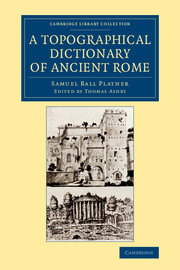
A Topographical Dictionary of Ancient Rome
-
- Published online:
- 05 September 2015
- Print publication:
- 21 May 2015
- First published in:
- 1929
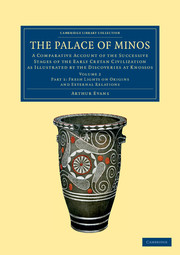
The Palace of Minos
- A Comparative Account of the Successive Stages of the Early Cretan Civilization as Illustrated by the Discoveries at Knossos
-
- Published online:
- 05 October 2014
- Print publication:
- 29 August 2013
- First published in:
- 1928
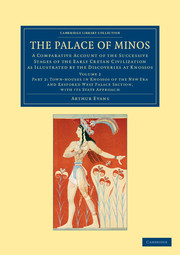
The Palace of Minos
- A Comparative Account of the Successive Stages of the Early Cretan Civilization as Illustrated by the Discoveries at Knossos
-
- Published online:
- 05 October 2014
- Print publication:
- 29 August 2013
- First published in:
- 1928



